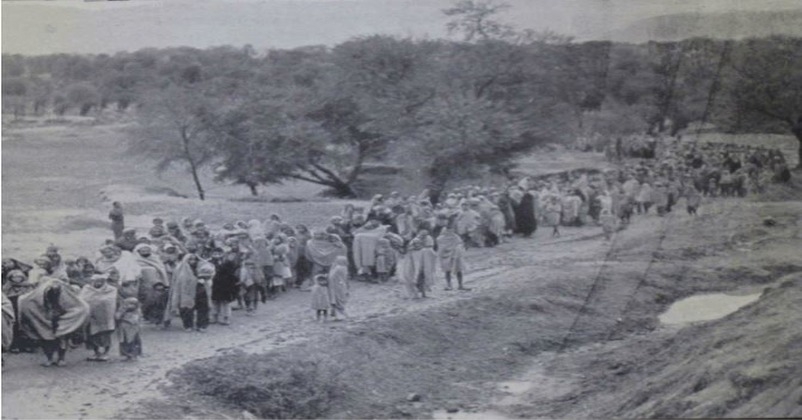12 facts on accession of J&K to India
| 06-Feb-2019 |
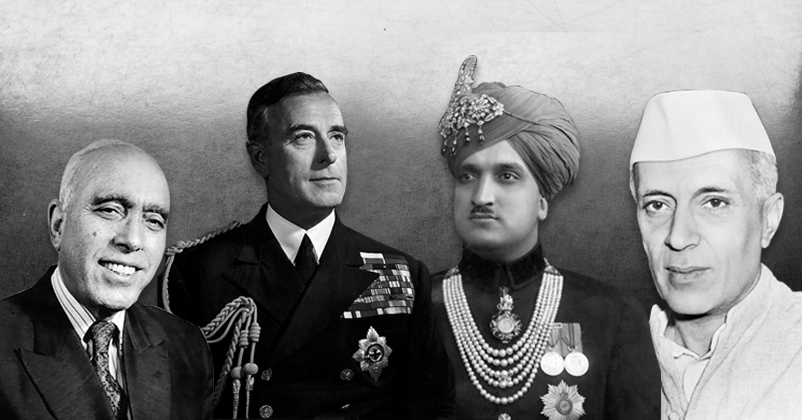
From left Sheikh Abdullah, Lord Mounbatten, Maharaja Hari Singh and Pandti Jawaharlal Nehru
With the signing of Instrument of Accession (IoA) by the then ruler of Jammu and Kashmir Maharaja Hari Singh on 26th October, 1947, J&K became an integral part of India. This accession was full, complete and irrevocable. Though Pakistan and its cronies in India have been spreading rumours that Maharaja did not take the wishes of the people of the state into consideration, while acceding to India yet it is not true. Even the sequence of events that happened later would amply clear that Maharaja and people of the state were on the same page on the question of accession. The state subjects had clearly conveyed their wishes for the accession of the state to India. It is important to note here though the letter of Mountbatten has no legal significance in the matter of accession yet the Indian adopted two of the mechanisms that Mountbatten has suggested for ascertaining the wishes of the people.
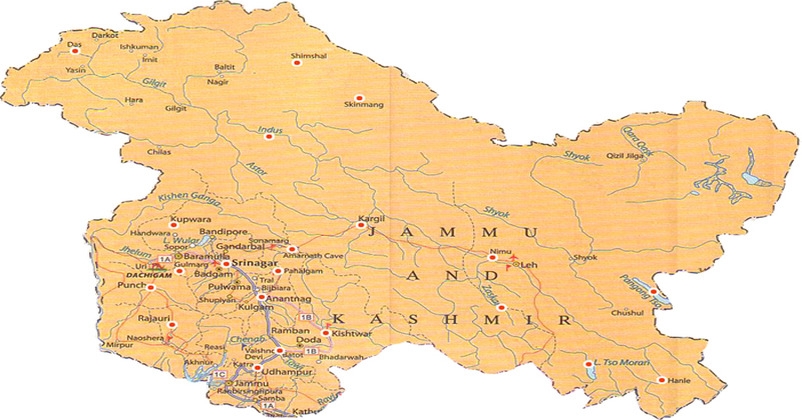
Map of the Jammu and Kashmir
Facts on people wishes and accession of Jammu and Kashmir
Following are some of the important facts, which clarify that the accession of J&K was legal and the people have conveyed their wishes for the same:
1. The Instrument of Accession was a legal instrument used by all the princely states, whether they acceded to India or Pakistan. This instrument was designed after much deliberation by the British and the concurrence for the same was given by the respective rulers of the princely states. This instrument clearly left it to the wisdom of the ruler of the state to accede to either of the dominions. Though certain media houses reported that some people wanted to replace the dynasty rule yet it was the undeniable fact that Maharaja Hari Singh was the recognised and the only legal person to make decision on the matter of accession.
2. There is no such record of that time, which shows that people were against the decision of the Maharaja. On the contrary, the documents were showing how brutally the administrative structure was crushed by Pakistani mercenaries and people had to run away from their houses for saving their own lives. The affected areas during this bloodbath were Bhimbar, Kotli, Mirpur, Mujjafarabad and Rajouri, where thousands of men, women and children were slain in a day. According to one estimate more than 10 Lakh people were displaced from Jammu and Kashmir during this bloodbath. Presently, all these areas except Rajouri are under the illegal occupation of Pakistan. The documents also speak volumes about how barbarically the males and children were butchered and females were raped during this time. This has made the people of the state to look upto India for help and it was quite obvious that they would stand by the decision of Maharaja.
3. The tallest leaders, at that point of time, of Jammu and Kashmir like Sheikh Abdullah from Kashmir valley, Pandit Premnath Dogra from Jammu and Kushok Bakula Rinpoche in Ladakh fought against Pakistani invaders to safeguard the state from them, which clearly show that the pro-Indian sentiments were prevailing in J&K at that point of time.
4. Sheikh Abdullah, himself endorsed the accession of J&K to India, while making the speech at the United Nation Security Council (UNSC) on 5th February, 1948 and in the constituent assembly on 5th November, 1951. In his speech he categorically mentioned that why he wishes that the state of J&K shall accede to India and not to the Muslim majority country i.e. Pakistan. He also mentioned that he does not believe in two nation theory or communalism itself. Further, he lamented the massacre of residents of the state. He was even ready to justify the accession of the state to India. In his speech in the UNSC, he categorically mentioned that Maharaja Hari Singh and the people of the state were on the common platform while acceding to India. He even mentioned that the Prime Minister of India showed his gesture of gratitude when he said ‘India does not want to take advantage of the difficult situation in Kashmir’ and will seek the ratification of people of the state once it is freed from Pakistani invaders.
5. The Lord Mountbatten letter of 27th October, 1947 has no legal sanctity as there was no pre-condition in the entire process of accession, which legally binds the ruler, to take people’s wishes into consideration. Further, there were no opposition or protest against the decision of Maharaja. On the contrary people participated in election process of the constituent assembly so that it would prepare the constitution of the state.
6. It was not found anywhere in the history that different sorts of instruments, containing specific conditions for any particular princely state(s), were used for accession. So, Maharaja was the only legal person in the matter of accession of J&K to either of the two dominions.
7. The proceedings of Constituent Assembly of the state on 6 February 1954 clearly mentioned that the Jammu & Kashmir Constituent Assembly ratified the IOA in the favour of India. This Constituent Assembly had the representatives of the people of J&K who took decision on the matter of Accession.
8. The Indian government went to the UNSC against the Pakistani aggression in J&K and not for any dispute on accession of the state. The same was accepted by the UNSC and it even asked the Pakistan to vacate the piece of land occupied by it illegally though it was a different matter that UNSC did not do anything to ensure the compliance of its resolution.
9. Even Government of India was ready for the plebiscite provided that the two conditions preceding to plebiscite must be fulfilled. These two conditions were ceasefire by Pakistan and withdrawal of Pakistani intruders from the soil of the state so that free and fair elections for the state can be ensured. But the first two conditions never fulfilled and the plebiscite, which was to ensue after the fulfilment of the two conditions, for the entire state, never happened. India waited for the international community to intervene in this matter and make a peaceful solution to the problems created by the Pakistani invaders, in this part of the country, but nothing happened in this matter. Therefore, on January 23, 1957 Mr. V. K. Krishna Menon, the Indian representative to UN, made it clear in the United Nation Security Council (UNSC) that J&K including POJK belongs to India only.
10. Constituent Assembly of democratically elected leaders was formed to prepare the Constitution of the state. This Constituent Assembly was created, which has the representation of democratically elected individuals, chosen by the people of the state.
11. The first general elections were held in the state in 1957, after the dissolution of Constituent Assembly, through well-defined procedure for the same and the democratically elected government was formed in J&K.
12. Lord Mountbatten, the then Governor General of India mentioned that there were four ways to ascertain the wishes of the people. These four ways were referendum, plebiscite, election or even, if these methods are impracticable, by representative public meetings (Mission With Mountbatten by Alan Campbell-Johnson, p.263). India has already exercised the last two options, i.e. election in the state and representative public meetings, to ascertain the wishes of the people.
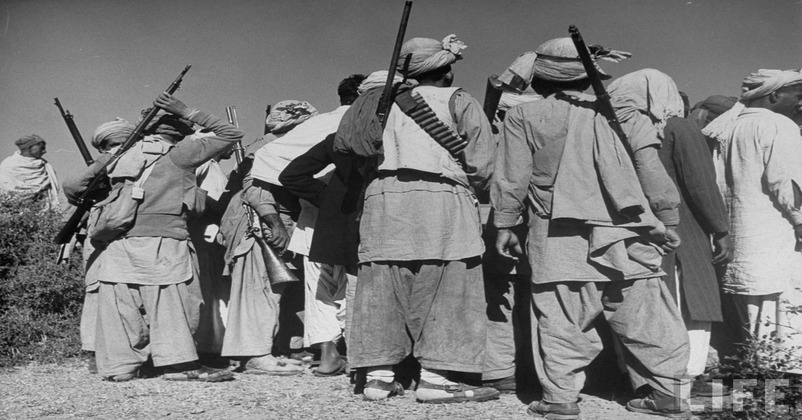
Terrorists from Pakistan
The above facts make it amply clear that the myth of the so called Kashmir problem has been created by certain cronies of Pakistan in Kashmir valley, India and in the media houses. It is important to understand here that Kashmir valley is one the smallest portion (i.e. 7%) of the entire state and the number of separatists elements even quite a few, who are spread in a limited number of districts of Kashmir. But they have the vast control over the institutions like media, bar association of Kashmir etc., which are the hindrances in spreading the correct information in the entire country. Focus has always been laid on a few selective people, who twisted the historical facts and separatists are some of these selective people, who are given undue advantage. It is also evident that the discussion on J&K is limited to the smallest portion of land and the problems like detention of Kashmiri stone-pelters, Armed Forces Special Power Act, are given more importance whereas there are much bigger issues. It has been infested in the mind of the people that wishes of the people of Jammu and Kashmir was never ascertained by India though it was not correct and the abovementioned facts clearly show it.
The above facts also break the myth that the people of J&K never wanted to accede to India. Also, tinkering with the well laid legal procedure would have opened the Pandora box and every princely state would have raised some demands on such flimsy grounds. It is also evident that people were not consulted when two nation theory was cropped and decision on the same was taken to part India into two dominions but it does not mean that people wishes were not paid heed during that time. On the question of people wish I again want to reiterate that people used their vote to convey their wishes. Though the Pakistan invaded J&K to terrorise its people yet it failed in its dubious plans and the state integrated with India.
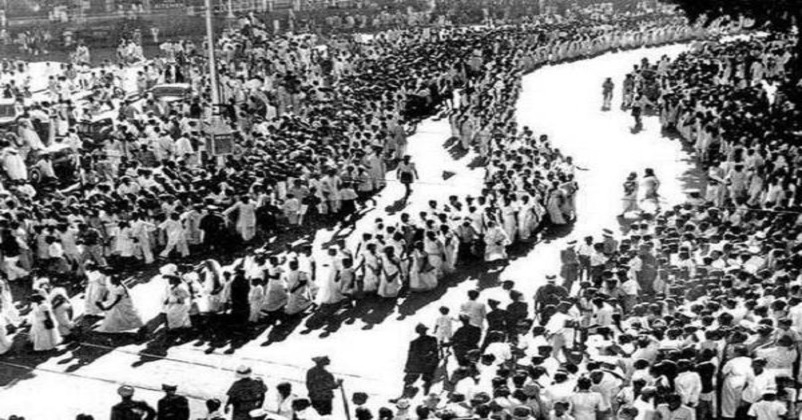
People migration
Conclusion
In conclusion, it can be said that Accession of J&K to India was a matter of great pride. Though the people’s wish was always taken yet certain miscreants are spreading the wrong information about it and a sort of confusing environment is created across India including J&K. The reason for such confusion was obviously that the then government was not able to look beyond Sheikh Abdullah. Though there were certain sections in J&K who wanted that all the provisions of Indian constitution must be implemented in the state, like any other state in India, yet no one was against the accession of the state to India. So, it clearly shows that it was not actually the residents of the state but Pakistan and its cronies, who were against the accession. I feel no person, who is having an iota of common sense, would accept that the wishes of the people of the state were the same as that of their oppressor (i.e. Pakistan). It is strange that people are speaking the language used by Pakistan and unfortunately, their false propaganda was spread whereas the factual information was never brought in the public domain.
